Indigenous Governance Database
Intergovernmental Relations
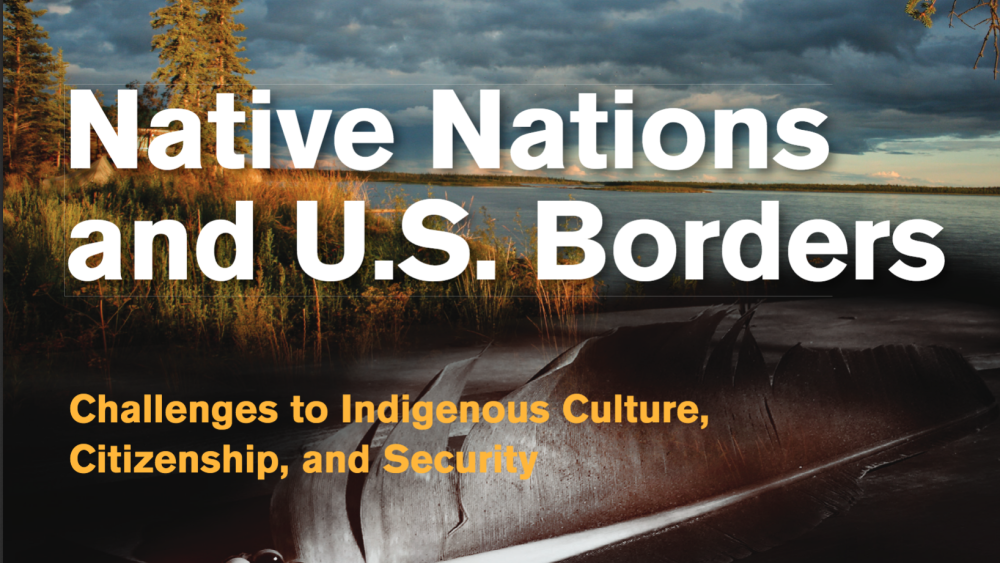
Native Nations and U.S. Borders: Challenges to Indigenous Culture, Citizenship, and Security
A comprehensive review of Native nations along or near the U.S. borders with Mexico, Canada, and Russia response to border-related challenges to citizenship, crossing rights and border security, culture, the environment and natural resources, and public health and safety. This book seeks to inform…
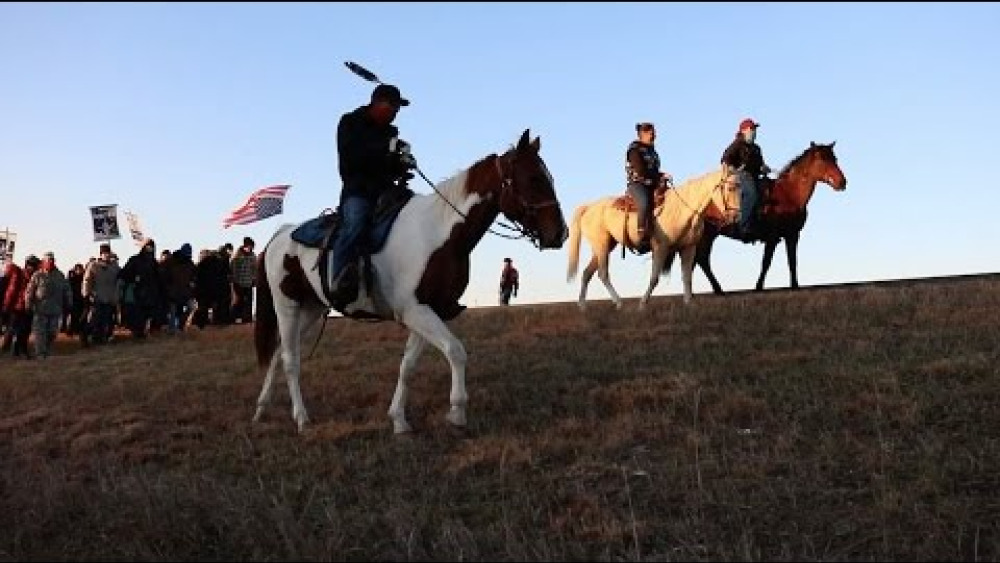
Water is Life video series Part 3 Mni Wiconi
The Native Nations Institute produced a three-part educational video series called, “Water is Life." The video series brings a Native nation building perspective to the conflict over the Dakota Access Pipeline and features interviews with LaDonna Brave Bull Allard, former tribal historic…
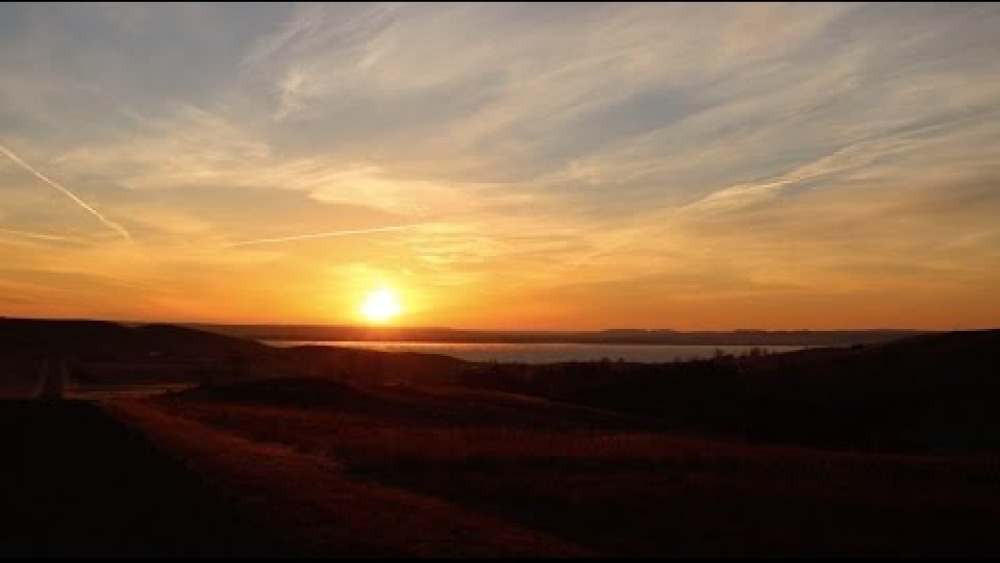
Water is Life video series Part 2 Oceti Sakowin
The Native Nations Institute produced a three-part educational video series called, “Water is Life." The video series brings a Native nation building perspective to the conflict over the Dakota Access Pipeline and features interviews with LaDonna Brave Bull Allard, former tribal historic…
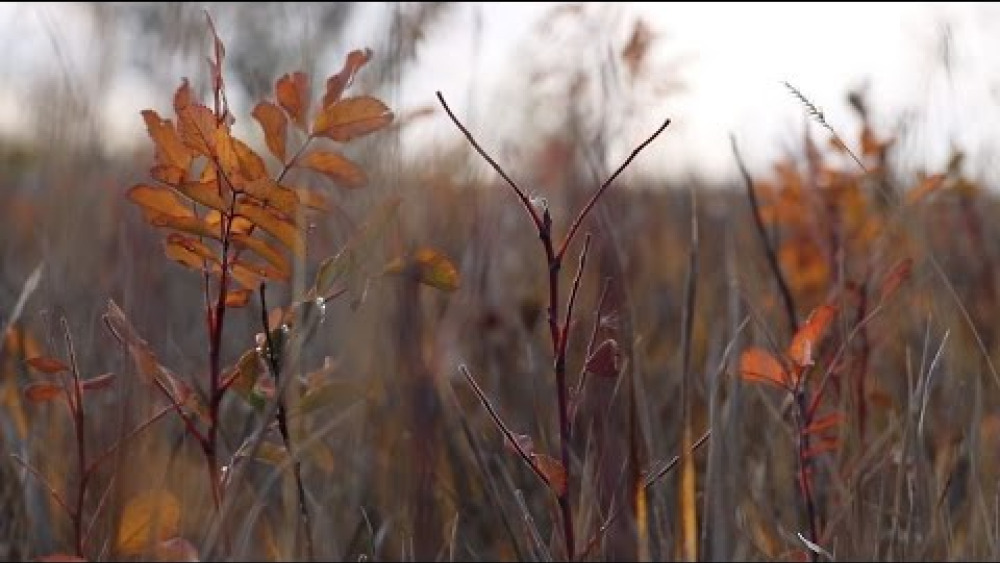
Water is Life video series Part 1 The Lakota and Dakota People
The Native Nations Institute produced a three-part educational video series called, “Water is Life." The video series brings a Native nation building perspective to the conflict over the Dakota Access Pipeline and features interviews with LaDonna Brave Bull Allard, former tribal historic…
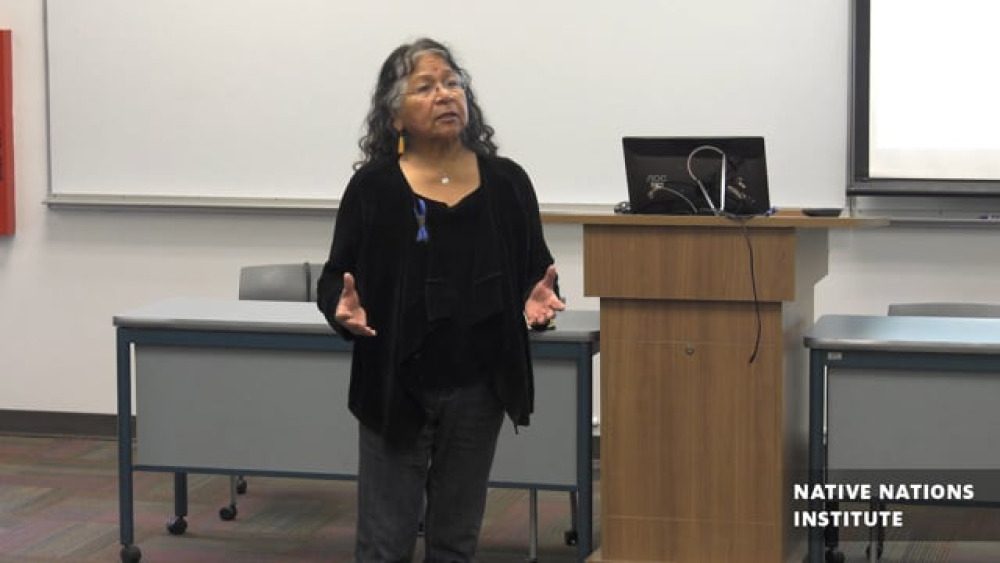
Diane Enos: Native Women in Governance
Diane Enos, Attorney, Councilwoman & Former President of Salt River Pima-Maricopa Indian Community. In addition to her tenure with the Salt River Pima – Maricopa Indian Community, Diane has served as Vice President of the Inter-Tribal Council of Arizona, as Chairwoman of the Arizona Indian…
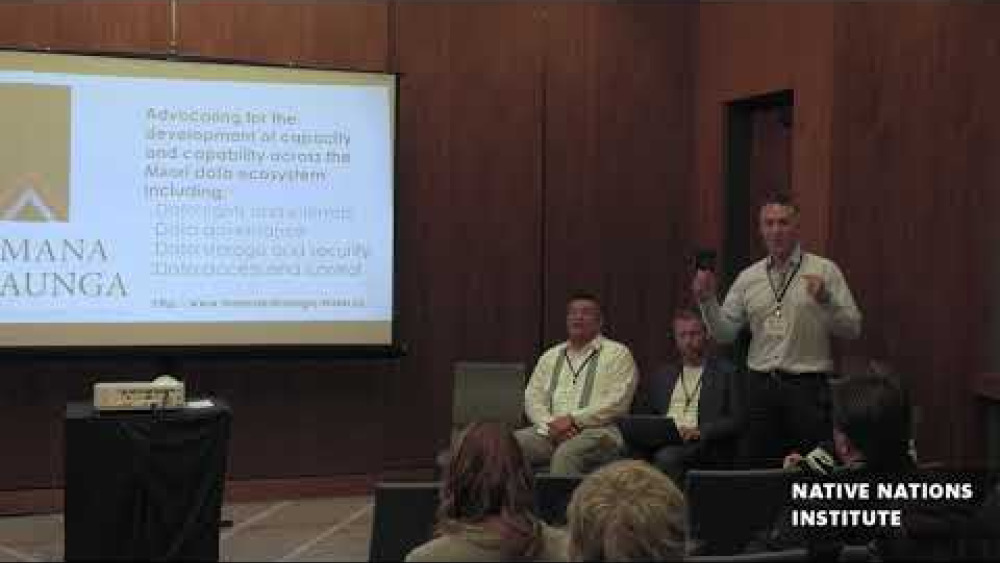
Indigenous Data Sovereignty: Global Progression
On May 18, 2018 at the Native American and Indigenous Studies Association (NAISA) Conference in Los Angeles, six leading scholars discussed the landscape and global opportunities and challenges Indigenous peoples face in the growing Indigenous data sovereignty movement. The presentations provided…
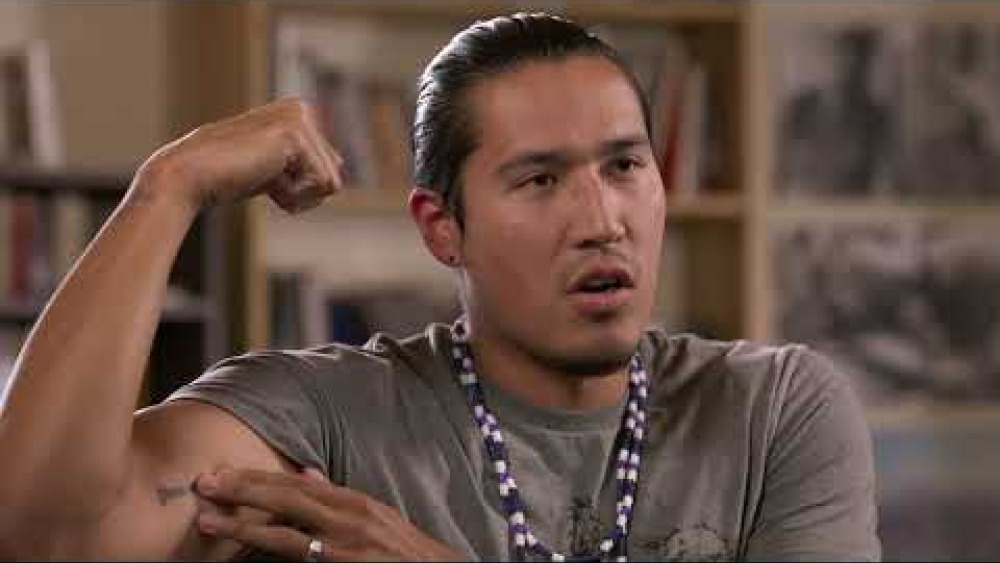
Native Treaties: Making Relations
Historically, intertribal relationships helped to maintain diplomacy and peace prior to the existence of the United States government. How can Native nations’ ethical and cultural values aid in today’s political climate? Produced in partnership with Twin Cities PBS and producer/director Missy…
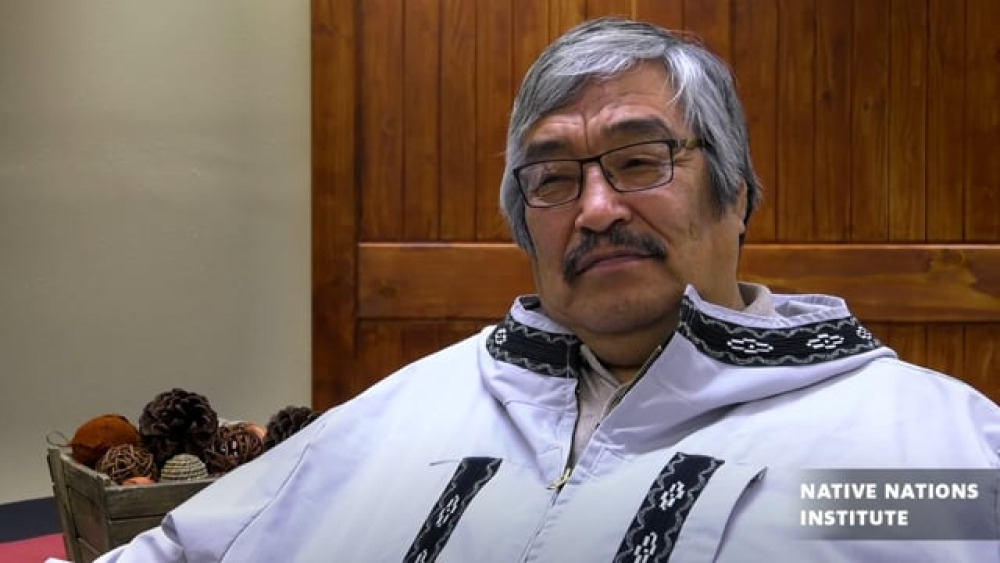
Mike Williams: Alaska Native governance and a healthy culture
Mike Williams is a well known indigenous leaders from being a Chairman and Vice-Chair of the Alaska Inter-Tribal Council as well as Chief of the Yupiit Nation. Mike offers his impressions about a variety of topics related indigenous governance including leadership, traditional governance,…
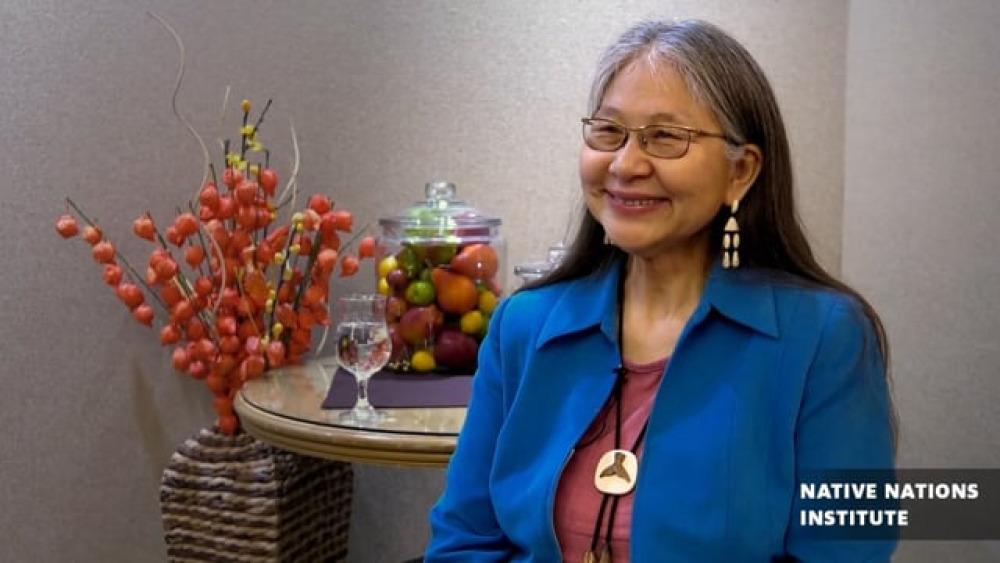
Theresa Arevgaq John: Alaska indigenous governance through traditions and cultural values
Theresa Arevgaq John is a well known Y’upik cultural advocate and Associate Professor in Indigenous Studies and the Department of Cross-Cultural Studies at the University of Alaska Fairbanks and has intimate knowledge about cultural practices within Indigenous governance. She advocates for balance…
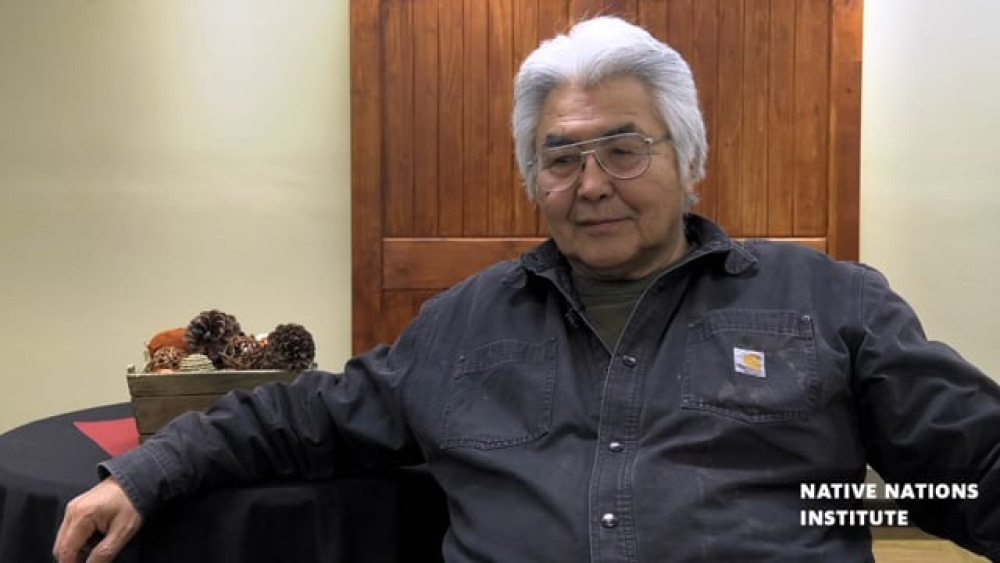
Wilson Justin: Leadership with Cultural Knowledge and Perseverance
Wilson Justin is a cultural ambassador for Cheesh’na Tribal council and serves as a Vice Chair Board of Directors for Mt. Sanford Tribal Consortium. He relays his expertise and perspective on the intricacies of Indigenous governance in Alaska through adapting cultural traditions, creating a…
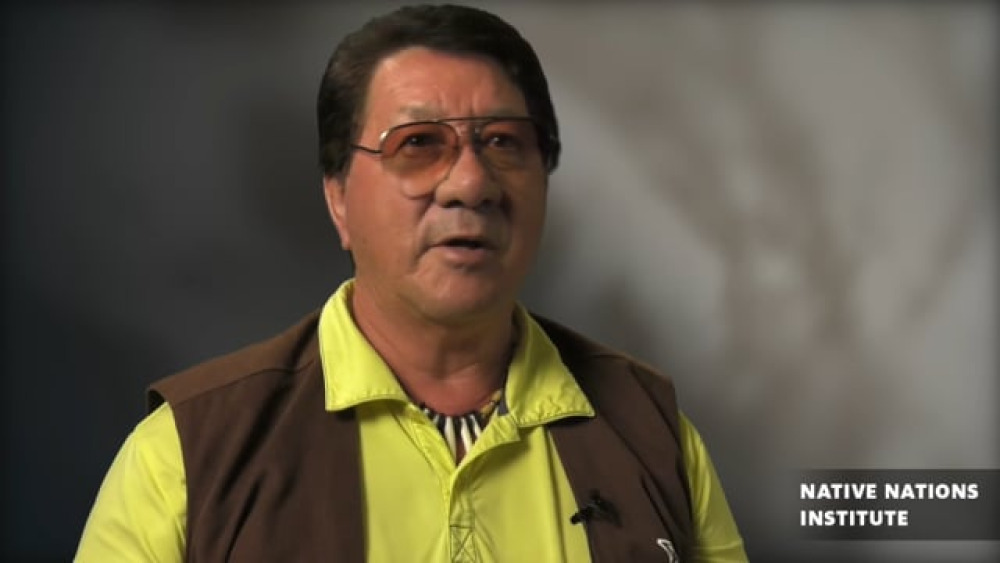
Michael Kanentakeron Mitchell: Stories and Reflections on Indigenous Governance
Former Grand Chief Michael Kanentakeron Mitchell of the Mohawk Council of Akwesasne recently stepped down from his role as Grand Chief after decades of building a strong independent jurisdiction. Chief Mitchell offers some of his stories and reflections in indigenous governance that pertains to…
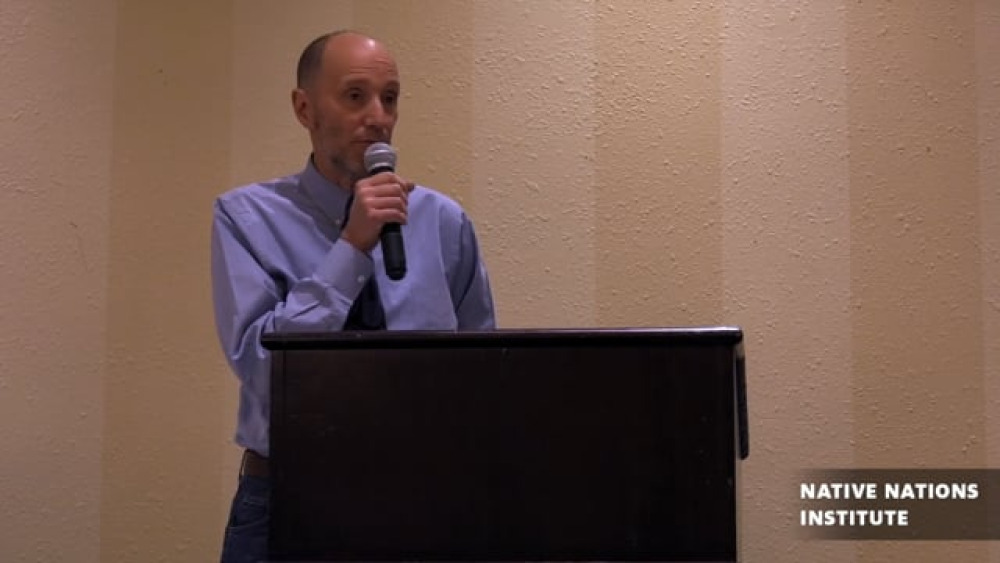
Jack Trope, Making the Indian Child Welfare Act Work: The Importance of Tribal Sovereignty
The expertise and knowledge about dealing with Alaska and Federal government entities in matters of child welfare are detailed with focus on asserting tribal sovereignty.
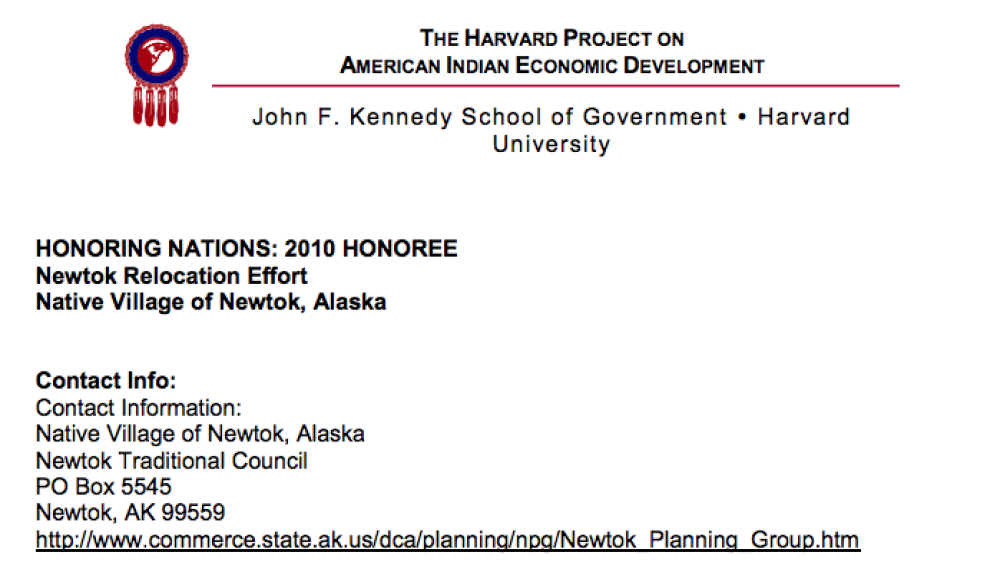
Newtok Relocation Effort
Scientists and politicians spend hours debating the facts of climate change, but in many places damaging changes to the local environment are already a reality. In the past decade, more and more human settlements have been threatened by catastrophic flooding, wildfires, or drought caused by…
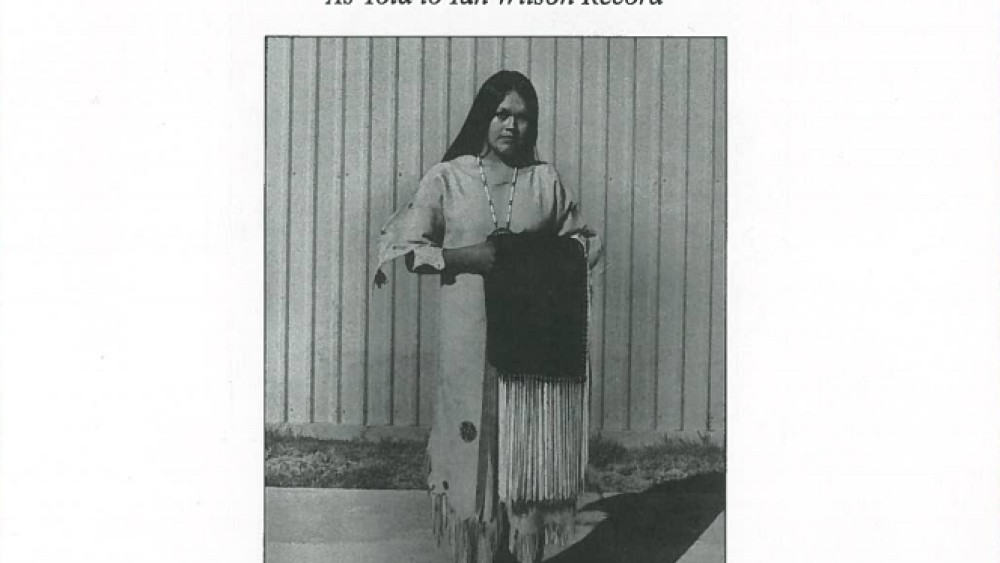
A Call to Action
As Native peoples across the country celebrate the 30th anniversary of the Indian occupation of Alcatraz (1969-1971) this fall, many newspapers, magazines and networks are filing stories that attempt to assess both the event's immediate impact as well as its cultural legacy. While many of these…
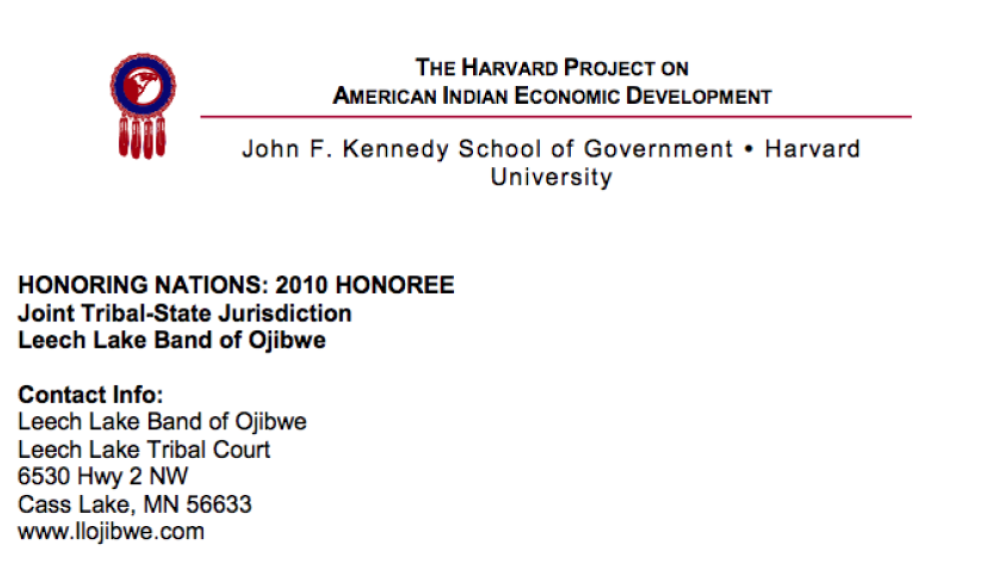
Leech Lake Joint Tribal-State Jurisdiction
Across Indian Country tribes are strengthening and better defining their governments in order to meet the unique needs of their communities. As Native nations work to expand their sovereign powers, tribal justice departments can play a critical role in achieving those goals. In the early 2000s, the…
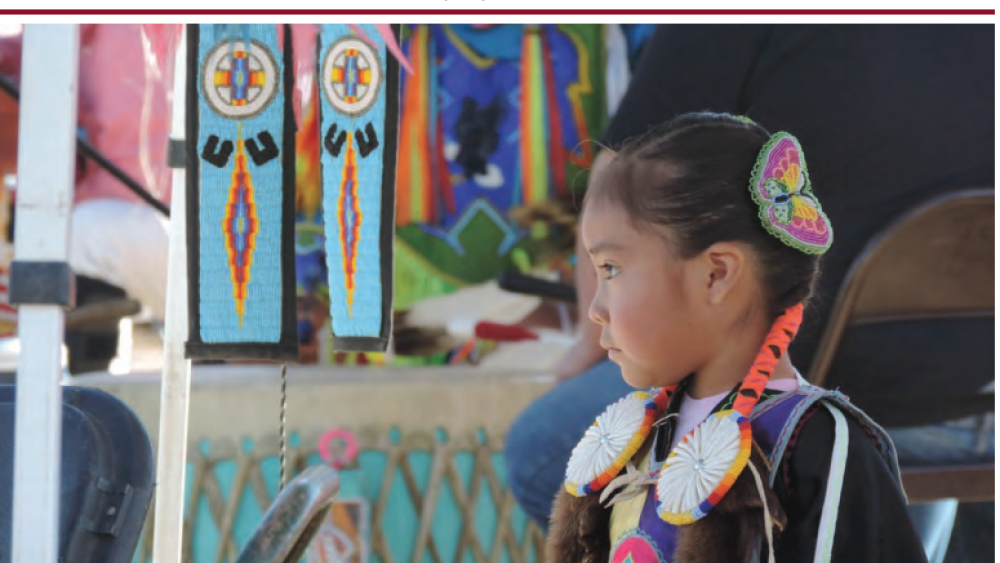
Tribal Child Welfare Codes as Sovereignty in Action. 2016 NICWA conference edition
With passage of the Indian Child Welfare Act of 1978 (ICWA), Congress formally recognized Native nations’ inherent authority to govern child welfare matters and provided support for tribal self-determination over child welfare. Because ICWA “assumes that a tribal code is the governance mechanism by…
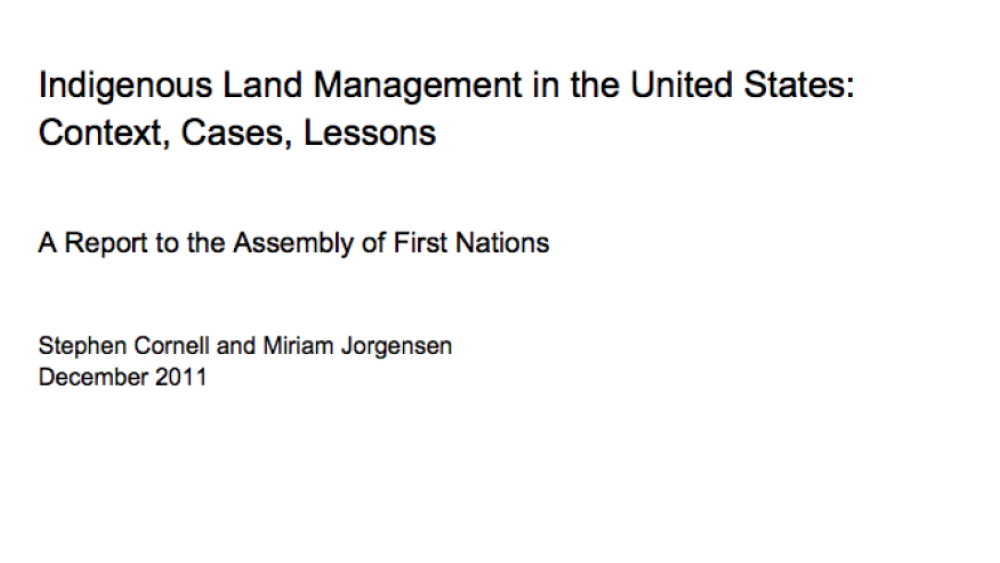
Indigenous Land Management in the United States: Context, Cases, Lessons
The Assembly of First Nations (AFN) is seeking ways to support First Nations’ economic development. Among its concerns are the status and management of First Nations’ lands. The Indian Act, bureaucratic processes, the capacities of First Nations themselves, and other factors currently limit the…
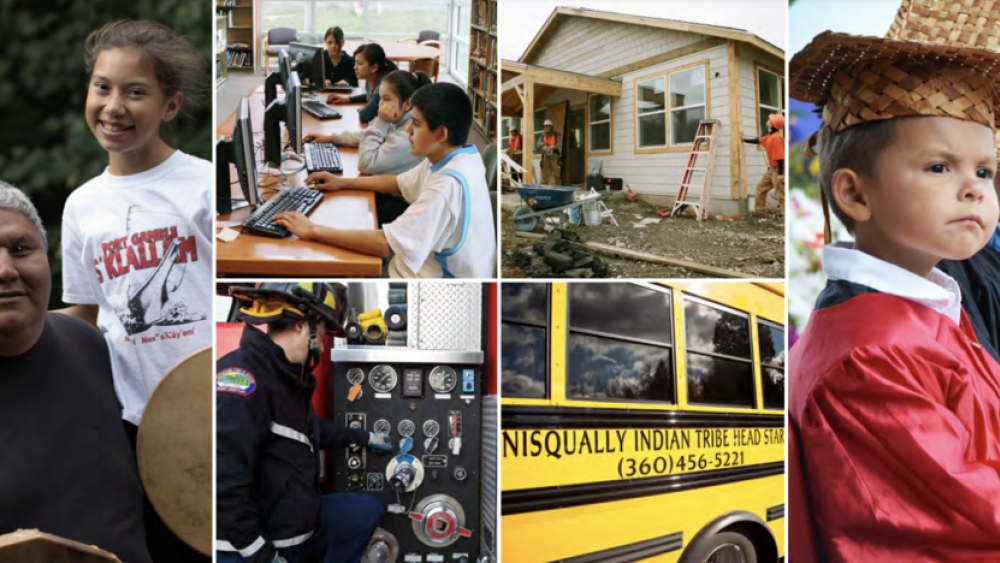
Why beggar thy Indian neighbor? The case for tribal primacy in taxation in Indian country
The law governing taxation in Indian country is a mess. The accretion of common law precedents and the general tendency of states to assert primacy over the taxation of non-Indians create absurd outcomes. This article makes the case three ways. The argument based on the law shows that…
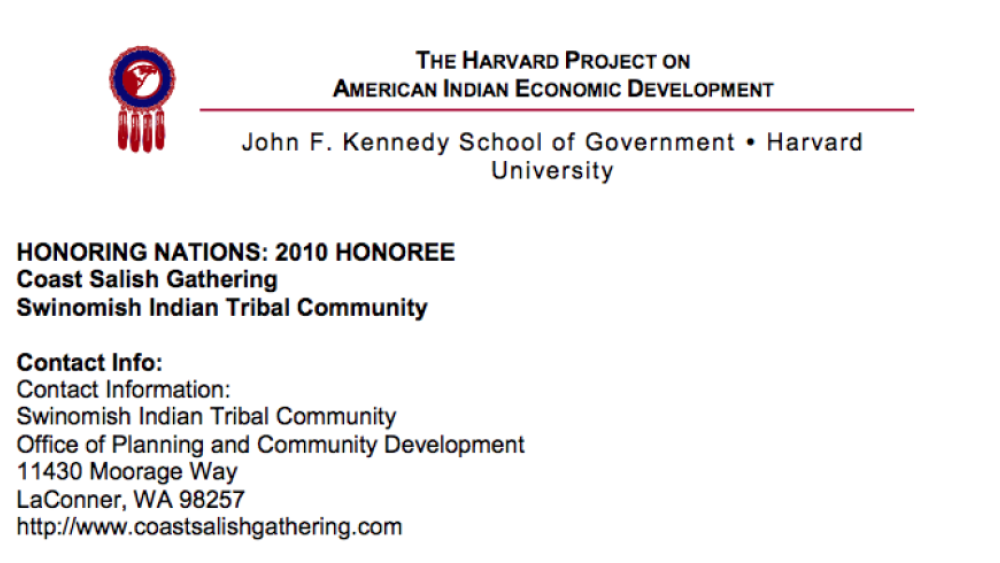
Coast Salish Gathering
Ecosystems in many parts of North America are under severe stress. Pollution, the overuse of natural resources, and habitat destruction threaten local flora and fauna. Conservation attempts often fall short because they target one species of site within an ecosystem. The Coast Salish Gathering…
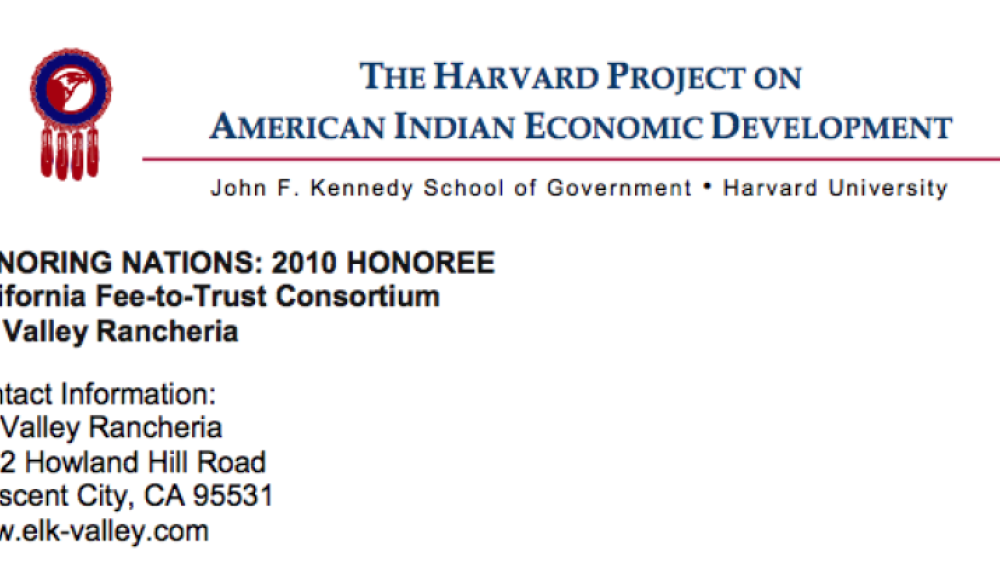
California Fee-to-Trust Consortium
The loss of traditional land is a source of longstanding trauma for Native nations. It has far reaching consequences that began at the time of dispossession and persist today. Many tribes struggle to regain territory in order to support the basic needs of their citizens – housing, economic…
